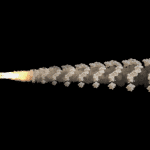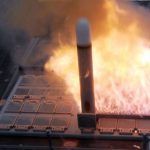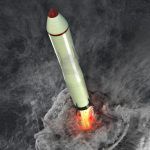Missile defense: The Russian reaction
By Pavel Podvig | February 25, 2007

The row over U.S. intentions to deploy elements of its missile defense system in Poland and the Czech Republic has the potential of bringing U.S.-Russian relations–not to mention bilateral arms control–to a new low. Russia has disapproved of the scheme ever since the United States first went public with the system about two years ago. But despite sounding angry, Russia remained calm, arguing that it already possessed the technology to deal with the interceptors the United States planned to place in Eastern Europe.
Recently, however, Moscow decided to up the ante. Clearly inspired by the assertive and rather confrontational presentation given by President Vladimir Putin at a conference in Munich on February 10, Russian generals started painting a picture of a much harsher response to the possible deployment. The commander of the Strategic Rocket Forces bluntly stated that his missiles could target U.S. missile defense installations in Poland and the Czech Republic if the political leadership ordered him to do so.
Meanwhile, the Chief of the General Staff announced that the missile defense deployment could trigger Russia’s withdrawal from the Intermediate Nuclear Forces (INF) Treaty that the United States and Soviet Union signed in 1987. Russia’s foreign minister sounded more conciliatory–sticking to the earlier “our technology can defeat the system” line–but the message had been sent.
If the purpose of that message was to dissuade Poland and the Czech Republic from deploying the system on their territory, it failed spectacularly–both governments immediately announced that they would accept the U.S. proposal. It is even possible that the strong rhetoric coming from Russia will help the Polish and Czech governments quell public opposition to the plan in both countries. Given the region’s history, Russia should understand that pressure will not work.
According to the plan, the site at Jince in the Czech Republic will host a European midcourse radar while the site near Koszalin, Poland, will be used to deploy a battery of ground-based interceptors. The site in Poland is located on the flight path from Iran to the U.S. East Coast. But the interceptors could also theoretically reach the trajectory of Russian missiles launched from bases in Russia’s European territory–Teykovo, Tatishchevo, and others. (Whether they would be able to intercept them is another matter.)
The United States, of course, insists that the missile defense deployments will not target Russian missiles, but few people in Russia are willing to believe this. In Russia, U.S. missile defense is invariably thought to be directed against Russian strategic forces. Besides, the fact that elements of the missile defense system will reside in two new NATO countries serves as a point of contention alone.
The problem with missile defense is that it’s an inherently flawed concept. What we see today is a demonstration of the core error in the concept: Instead of solving problems, missile defense creates them.
But it’s misguided to argue that the United States should move the interceptors elsewhere or somehow limit the missile defense system’s capability so it would not intercept Russian missiles (which it won’t be able to do anyway). Preserving Russia’s retaliatory potential and the balance of mutual assured destruction doesn’t make missile defense a better idea. The problem with missile defense is that it’s an inherently flawed concept. What we see today is a demonstration of the core error in the concept: Instead of solving problems, missile defense creates them.
It’s quite likely that Russia will use the system’s deployment in Europe as a pretext for pulling out of the INF Treaty. What kind of benefit this withdrawal could bring to Russia remains unclear. But at this point, Russia could do so just to prove it can. If the United States is able to pull out of the Anti-Ballistic Missile Treaty, why can’t Russia unilaterally extract itself from the treaties it no longer likes? Isn’t that what superpowers do these days? If so, we’re in serious trouble.
Together, we make the world safer.
The Bulletin elevates expert voices above the noise. But as an independent nonprofit organization, our operations depend on the support of readers like you. Help us continue to deliver quality journalism that holds leaders accountable. Your support of our work at any level is important. In return, we promise our coverage will be understandable, influential, vigilant, solution-oriented, and fair-minded. Together we can make a difference.
Share: [addthis tool="addthis_inline_share_toolbox"]














